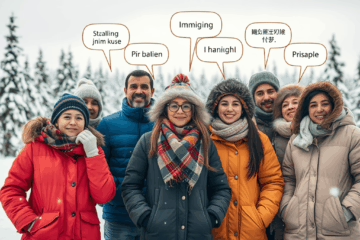Pax Law Corporation regularly assists clients who are afraid for their health if they were to return to their home countries with applying for refugee status. In this article, you will be able to find detailed information about the requirements and steps to becoming a refugee in Canada.
Table of contents
- Refugee Status from Inside Canada:
- Who Can Apply:
- Eligibility :
- How to Apply:
- In-person Appointments :
- Interviews:
- Hearing :
- How Canada’s Refugee System Works:
- Healthcare :
- IFHP Pre-Departure Medical Services:
- Immigration Loans Program:
- Employment for People Who Apply to Become Refugees in Canada
- Education for People Who Apply to Become Refugees in Canada
Refugee Status from Inside Canada:
Canada offers refugee protection to some individuals in Canada who fear prosecution or would be in danger if they return to their home country. Some of these dangers include:
- Torture;
- Risk to their life; and
- Risk of cruel and unusual treatment or punishment.
Who Can Apply:
To make a refugee claim, individuals must be:
- In Canada; and
- Not be subject to a removal order.
If outside Canada, individuals may be eligible to resettle in Canada as a refugee or apply through these programs.
Eligibility:
When making a claim, the government of Canada will decide if individuals can be referred to the Immigration and Refugee Board of Canada (IRB). The IRB is an independent tribunal responsible for immigration decisions and refugee matters.
The IRB decides whether an individual is a convention refugee or a person in need of protection.
- Convention refugees are outside their home country or the country they usually live in. They cannot return due to fear of prosecution based on their race, religion, political opinion, nationality, or being a part of a social or marginalized group (women or people of particular sexual orientation).
- A person in need of protection is a person in Canada who cannot return to their home country safely. This is because if they return, they may face torture, a risk to their life, or risk of cruel and unusual punishment.
How to Apply:
To learn more about how to make a refugee claim, please visit: Claim refugee status from inside Canada: How to apply – Canada.ca.
You can apply to become a refugee in Canada at a port of entry or once you are already inside Canada.
If you make your claim at the port of entry, there are four possible outcomes:
- The border services officer decides your claim is eligible. Then You will have to:
- Complete medical exam; and
- Go to your hearing with the IRB.
- The officer schedules you for an interview. Then you will:
- Complete medical exam; and
- Go to your scheduled interview.
- The officer tells you to complete your claim online. Then you will:
- Complete claim online;
- Complete medical exam; and
- Go to your scheduled interview.
- The officer decides your claim is not eligible.
If you are applying to become a refugee from inside Canada, you will have to apply online through the Canadian Refugee Protection Portal.
When applying online through Canadian Refugee Protection Portal, upon completing the application, the following steps are to complete their medical exam and attend their in-person appointment.
In-person Appointments:
Individuals must bring their original passport or other identification documents to their appointment. During the appointment, their application will be reviewed, and their biometrics (fingerprints and photos) will be collected. A mandatory interview will be scheduled if no decision is made at the appointment.
Interviews:
During the interview, the eligibility of the application is decided. If it is eligible, individuals will be referred to the Immigration and Refugee Board of Canada (IRB). After the interview, individuals will be given a Refugee Protection Claimant Document and a referral confirmation. These documents are essential because they prove that the individual is a refugee claimant in Canada and will allow the individual access to Interim Federal Health Program (IFHP) and other services.
Hearing:
Individuals may be given a notice to appear for a hearing when referred to IRB. After the hearing, the IRB will decide if the application is approved or rejected. If accepted, individuals are given a “protected person” status. If rejected, individuals must leave Canada. There is a possibility of appealing IRB’s decision.
How Canada’s Refugee System Works:
Many programs help refugees settle and adjust to life in Canada. Under the Resettlement Assistance Program, the government of Canada helps government-assisted refugees with essential services and income support once they are in Canada. Refugees get income support for one year or until they can provide for themselves, whichever comes first. The social assistance rates depend on each province or territory, and they help guide the money needed for basic needs such as food, shelter, and other essentials. This support can include a:
There are also some special allowances that refugees can get. Some of these include:
- A school start-up allowance for children attending school, from kindergarten through high school (one-time $150)
- A maternity allowance for pregnant women (Food – $75/month + clothing – one time $200)
- A newborn allowance for a family to buy clothing and furniture for their child (one-time $750)
- A housing supplement
The Resettlement Assistance Program also provides some services for the first four to six weeks upon their arrival in Canada. These services include:
- Welcoming them at the airport or any port of entry
- Helping them find a temporary place to live
- Helping them find a permanent place to live
- Assessment of their needs
- Information to help them know Canada and settle in
- Referrals to other federal and provincial programs for their settlement services
Healthcare:
The Interim Federal Health Program (IFHP) provides limited, temporary healthcare coverage to people who are not eligible for provincial or territorial health insurance. Basic coverage under the IFHP is similar to health care coverage provided by provincial and territorial health insurance plans. The IFHP coverage in Canada includes basic, supplemental and prescription drug benefits.
Basic Coverage:
- In-patient and out-patient hospital services
- Services from medical doctors, registered nurses and other licensed healthcare professionals in Canada, including pre-and post-natal care
- Laboratory, diagnostic, and ambulance services
Supplemental Coverage:
- Limited vision and urgent dental care
- Home care and long-term care
- Services from allied healthcare practitioners, including clinical psychologists, psychotherapists, counselling therapists, occupational therapists, speech-language therapists, physiotherapists
- Assisted devices, medical supplies, and equipment
Prescription drug coverage:
- Prescription medications and other products listed on provincial/territorial public drug plan formularies
IFHP Pre-Departure Medical Services:
The IFHP covers some pre-departure medical services for refugees before they leave for Canada. These services include:
- Immigration Medical Examinations (IME)
- Treatment for medical services that would otherwise make individuals inadmissible to Canada
- Certain services and devices needed for safe travel to Canada
- Immunization costs
- Treatments for outbreaks in refugee camps, transit centres, or temporary settlements
The IFHP does not cover the cost of healthcare services or products that can be claimed under private or public insurance plans. The IFHP does not coordinate with other insurance plans or programs.
Immigration Loans Program:
This program helps refugees with financial needs to cover the costs of:
- Transportation to Canada
- Additional settlement costs to settle in Canada, if needed.
After living in Canada for 12 months, individuals are expected to start repaying their loans each month. The amount is calculated based on how much loan is burrowed. If they cannot pay, with a clear explanation of their situation, individuals can ask for repayment plans.
Employment for People Who Apply to Become Refugees in Canada
Refugees can request a work permit at the same time they apply for refugee status. However, if they do not submit it at the time of their application, they can submit a work permit application separately. In their application, they need to provide:
- Copy of refugee protection claimant
- Proof that they did their medical examination
- Proof they need a job to pay for their basic needs (food, clothing, shelter)
- The family members requesting work permits are also with them in Canada and applying for Refugee status
Education for People Who Apply to Become Refugees in Canada
While waiting for a decision on their claim, individuals can apply for a study permit. They need an acceptance letter from a designated learning institution before applying. Minor children do not require study permits to attend kindergarten, elementary, or secondary school.
Aside from the Resettlement Assistance Program (RAP), some programs are also provided to all newcomers, including refugees. Some of these settlement services are:
- Canadian Orientation Abroad programs that give general information about life in Canada.
- Language training in English and French to gain skills to live in Canada at no cost
- Help with searching and finding jobs
- Community networks with long-time Canadians and other established immigrants
- Support services such as:
- Childcare
- Accessing and using transportation services
- Finding translation and interpretation services
- Resources for people with disabilities
- Short-term crisis counselling if needed
Access to these settlement services continues until individuals become Canadian citizens.
For more information, visit Refugees and asylum – Canada.ca
Find newcomer services near you.
If you are considering applying to become a refugee in Canada and need legal assistance, contact Pax Law’s immigration team today.
By: Armaghan Aliabadi
Reviewed by: Amir Ghorbani
Discover more from Pax Law Corporation
Subscribe to get the latest posts sent to your email.



0 Comments